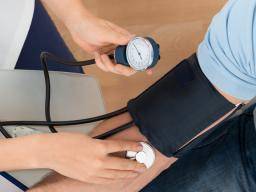While low blood pressure might seem like a good thing to have, a person’s blood pressure can occassionally be too low and cause problems.
In some situations, natural solutions can raise low blood pressure and relieve some of the symptoms that accompany it. In other cases, intervention in the form of medications and therapies may be needed to raise blood pressure to a healthy level.
Blood pressure can be measured using millimeters of mercury (mmHg).
Low blood pressure or hypotension is most regularly defined as any reading lower than 90 mmHg over 60 mmHg.
However, most doctors will only describe low blood pressure as a problem if a person has the symptoms of low blood pressure.
Low blood is not a concern if there are no symptoms present. However, when low blood pressure causes symptoms it can be a sign that not enough blood is getting to the organs.
If this happens for too long, it can cause serious consequences, including:
Most people with low blood pressure do not need medications or other medical interventions to raise blood pressure. There are plenty of natural ways and lifestyle changes to raise low blood pressure, including the following lifestyle changes.
Contrary to popular advice, low-sodium diets are not good for everyone with blood pressure problems.
People with low blood pressure should consider increasing their sodium intake moderately to help raise blood pressure.
Alcohol can lower blood pressure further, so people with low blood pressure should avoid drinking excessive amounts of alcohol.
Low blood pressure can be a side effect of a variety of medications.
If symptoms of low blood pressure begin after starting a medication, a person should discuss the symptoms with their doctor.
Crossing the legs while sitting has been shown to increase blood pressure. For people with high blood pressure, this can be a problem.
For people with low blood pressure symptoms, crossed legs may help increase blood pressure with minimal effort.
Drinking more water can help increase blood volume, which can aleviate one of the potential causes of low blood pressure. It can also help avoid dehydration.
Eating smaller, more frequent meals throughout the day may help with low blood pressure.
This is because the smaller meals help prevent a drop in a blood pressure associated with eating larger, heavier meals.
Compression stockings help reduce the amount of blood that gets caught in the lower legs and feet, so shifting it elsewhere.
Compression stockings are also used to help relieve pressure and pain associated with varicose veins.
Sitting up or standing up rapidly can cause a feeling of lightheadedness, dizziness, or potential fainting in people with low blood pressure.
In these cases, the heart has not pumped enough blood through the body quickly enough to account for the sudden change in position or elevation.
Low blood pressure is only considered a problem if symptoms exist. If there are no symptoms present, low blood pressure should be taken as a sign of good health.
It is important for a person to know the symptoms and what to look out for if their low blood pressure starts to cause problems.
There are a number of potential causes of low blood pressure. In some cases, the underlying condition will need to be treated to correct low blood pressure.
Some of the most common causes include:
However, low blood pressure can also be an indicator of good health if a person is not experiencing any symptoms.
Some people with low blood pressure have no symptoms. In these people, low blood pressure is generally not dangerous or concerning.
However, even showing one or two symptoms may signal a problem. Low blood pressure can cause the following:
Some people may have symptoms of low blood pressure only when standing. This is known as orthostatic hypotension. Usually, this is not dangerous unless positional changes cause a person’s blood pressure to drop rapidly, which may lead to fainting.
In more extreme cases, low blood pressure may lead to shock. Shock is a serious medical emergency caused by reduced blood flow throughout the body. It can damage the organs at a cellular level.
The symptoms of shock include the following:
A person experiencing symptoms of shock needs urgent medical attention.
Doctors typically agree that low blood pressure is only an issue if symptoms exist.
A person with low blood pressure should be aware of possible symptoms and what medications may cause a further drop in their blood pressure when they start taking them.
Experiencing any of the symptoms of low blood pressure may also indicate an underlying condition that may need to be addressed.
Anyone experiencing signs and symptoms of shock needs to seek immediate medical attention, as shock is a life-threatening medical emergency.
People who do not respond well to natural solutions may want to ask their doctor about medications that help raise blood pressure levels.
A person may also want to consider:
Unlike high blood pressure, which is associated with many potential health problems, low blood pressure is often considered a marker of good health.
A person should be aware of signs and symptoms of low blood pressure and talk to a doctor if low blood pressure is causing problems for them.
Read this article in Spanish.
Last medically reviewed on January 12, 2020
Low blood pressure is not usually an emergency. However, if it co-occurs with certain other symptoms, a person may need to contact a doctor. Learn…
Having low blood pressure with a high pulse can be a normal response to certain situations, such as after exercising or standing up too quickly. Learn…
Hypotension, or low blood pressure, can stem from a number of causes. Severe hypotension may indicate an underlying condition that needs treatment.
Some foods and drinks can help raise blood pressure in people with long-term low blood pressure. Learn more about which foods to eat and avoid.
OUR BRANDS
